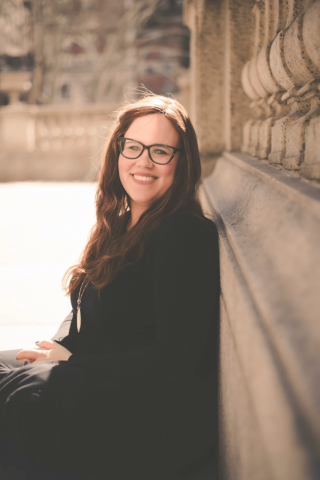SBL Alumni Profile: Tziri Lamm, Part 3

PART ONE | PART TWO | PART THREE | PART FOUR | PART FIVE| PART SIX
In part three of this six-part series, Tziri Lamm, an alumna of the M.A. Program in School Building Leadership Program at Brooklyn College, discusses how graduate school empowered her as a Jewish educator. The application deadline for the M.A. in SBL is March 31, 2019.
(3/6) “The Moment I Found My Voice”

“One of my master’s courses, called ‘Self in Education,’ taught about how who I am as an individual, impacts who I am as a teacher. It was fascinating because it taught me so much about the intersection between myself and my teaching. One discussion we had in class was how vital it was for adolescents to read literature that contained representations of who they are. We discussed promoting multiculturalism in literature, specifically the literature we taught in our classrooms. What struck me was that the Bais Yaakov girls I taught every day were not seeing themselves represented in the literature they were reading. Even many of the books marketed specifically for frum girls, the students often didn’t find interesting or stimulating. For my final paper, I chose to research the issue: if my students didn’t see themselves represented in what they were reading, how would it help them form their identities? I made surveys and handed them out to students to gather data, but somehow this didn’t bring me any closer to finding a solution.
My professor recommended a book about feminism in Jewish schools. He thought I might enjoy it and suggested I write about how religious girls schools have an antiquated approach to teaching, how we were not feminist enough in our school systems. I started reading the book, and I felt the need almost immediately to take a pencil to the book, making notes and corrections. The author’s version of Orthodox feminism was drastically different from my own definition for myself and what I saw in my school. To get a balanced perspective, I read a book with entirely antithetical opinions written by an anti-feminist author. Doing so, I recognized, was key to helping me realize my own opinions. Where I came to at the end of my research paper was this: Willingness to listen to other viewpoints with tolerance and respect allowed me to create a composite ideology comprised of all of them. My opinion was created by me and just for me. That was really a defining moment for me, a moment when I realized where I wanted to go in education: I needed to stay in the Jewish school system. There, I could encourage discussion, conversation, critical thinking, and openness to ideas.
I tell my students, ‘It’s okay to read something and then disagree.’ Sometimes the best way to learn is to read something and realize, ‘This concept doesn’t work for me.’ Being able to find your voice, even when there are loud and important voices saying different things, is the bedrock of everything that I hope to transmit to my students.”
This profile is brought to The Jewish Education Project in partnership with The Layers Project Magazine. Read part four.
